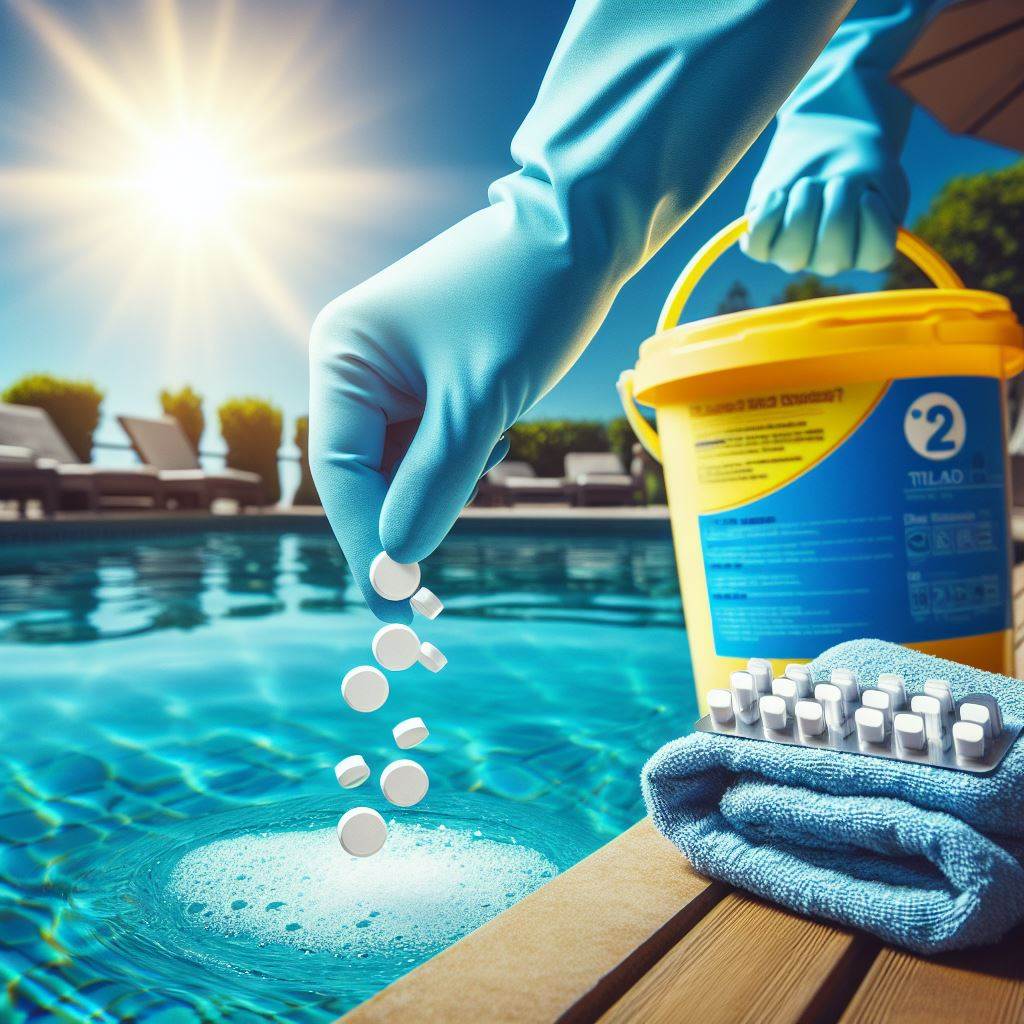Chlorine tablets are commonly used in swimming pools to maintain water quality and safety by disinfecting the water. However, overuse of chlorine tablets can lead to several issues including skin and eye irritation, damage to pool equipment, and environmental harm. In this article, we will explore effective strategies to avoid overusing chlorine tablets in swimming pools.

Regular Water Testing
Regular water testing is essential to ensure that the chlorine levels in the pool are within the recommended range. Testing kits are readily available and easy to use, allowing pool owners to monitor chlorine levels accurately. By testing the water regularly, pool operators can adjust the chlorine dosage as needed, thereby preventing overuse of chlorine tablets.
Proper Pool Maintenance
Proper pool maintenance practices can help reduce the need for excessive chlorine usage. This includes regular cleaning of the pool walls and floors, skimming the surface for debris, and maintaining proper filtration. By keeping the pool clean and free of contaminants, the chlorine demand is reduced, allowing for lower chlorine tablet usage.
Use Alternative Sanitizers
In addition to chlorine tablets, there are alternative pool sanitizers available on the market such as saltwater systems, ozone generators, and UV sterilizers. These systems offer effective disinfection while reducing the reliance on chlorine tablets. Pool owners can explore these alternative sanitizers as a means to minimize chlorine usage and its associated drawbacks.
Implement Pool Covers
Using pool covers when the pool is not in use can help prevent evaporation of water and reduce the need for frequent refilling. This, in turn, reduces the concentration of chemicals in the pool water, including chlorine. By implementing pool covers, pool operators can effectively conserve water and minimize the usage of chlorine tablets.
Educate Pool Users
Educating pool users about the proper use of chlorine tablets and the importance of water conservation can help promote responsible pool maintenance practices. Providing guidelines on how to use chlorine tablets correctly, encouraging showering before swimming, and emphasizing the importance of water quality can all contribute to reducing chlorine tablet overuse.
Seek Professional Advice
For pool owners who are unsure about proper chlorine tablet usage and pool maintenance, seeking professional advice from certified pool operators or technicians is recommended. These professionals can provide valuable insights and guidance on maintaining optimal water quality without overusing chlorine tablets.
Consider Pool Size and Usage
The size of the pool and its usage patterns should also be taken into account when determining chlorine tablet dosage. Larger pools or pools that are heavily used may require higher chlorine levels for effective disinfection. However, careful monitoring and adjustment of chlorine dosage can still prevent overuse in these scenarios.
Environmental Impact
Overuse of chlorine tablets can have negative environmental impacts, including the release of harmful chemicals into the environment. By minimizing chlorine tablet usage, pool owners can reduce their environmental footprint and contribute to sustainability efforts.
Conclusion
In conclusion, avoiding overuse of chlorine tablets in swimming pools is crucial for maintaining water quality, protecting pool equipment, and minimizing environmental harm. By implementing strategies such as regular water testing, proper pool maintenance, and exploring alternative sanitizers, pool owners can effectively manage chlorine usage and promote responsible pool maintenance practices. Through education, awareness, and proactive measures, we can ensure that swimming pools remain safe and enjoyable spaces for everyone while minimizing the negative impacts of chlorine overuse.

 Instant
Quote
Instant
Quote Email
Us
Email
Us